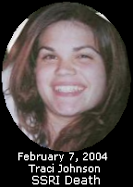I know, you know, we all know that the World Health Organization, WHO, supports Big Pharma. Here is one of some of Wikileaks's Big Pharma's documents:
"Released December 9, 2009
Summary
This is a confidential pharmaceutical industry trade association dossier about the WHO Expert Working Group (EWG) on R&D Financing.
The International Federation of Pharmaceutical Manufacturers & Associations (IFPMA; "Big Pharma") gave its members 4 documents: a non-public draft report of the WHO EWG and a non-public Comparative Analysis done by the working group, the IFPMA Overview of the EWG Comparative Analysis, and IFPMA summary slide on the EWG Draft Report.
The compilation of documents shows the influence of "Big Pharma" on the policy making decisions of the WHO, the UN body safeguarding public health. These confidential documents were obtained by the drug industry before their public release to WHO member states (scheduled to be released May 2010). The document also illustrates that the WHO expert group was highly responsive to industry lobbying — a result that public health groups had feared since early 2009, when the expert group met with the industry, but refused to meet with public health groups known to be industry critics.
The likely audience for these documents include countries, public health policy makers, civil society, industry, academia, media, patients and the general public.
Journalists can contact Dr Margaret Chan, Director-General of WHO: chanm@who.int and Malebona Precious Matsoso, WHO Director, Public Health, Innovation and Intellectual Property: matsosom@who.int
According to our source, the English version of the final report of the EWG with its recommendations is expected to be released to member state countries this week."



















